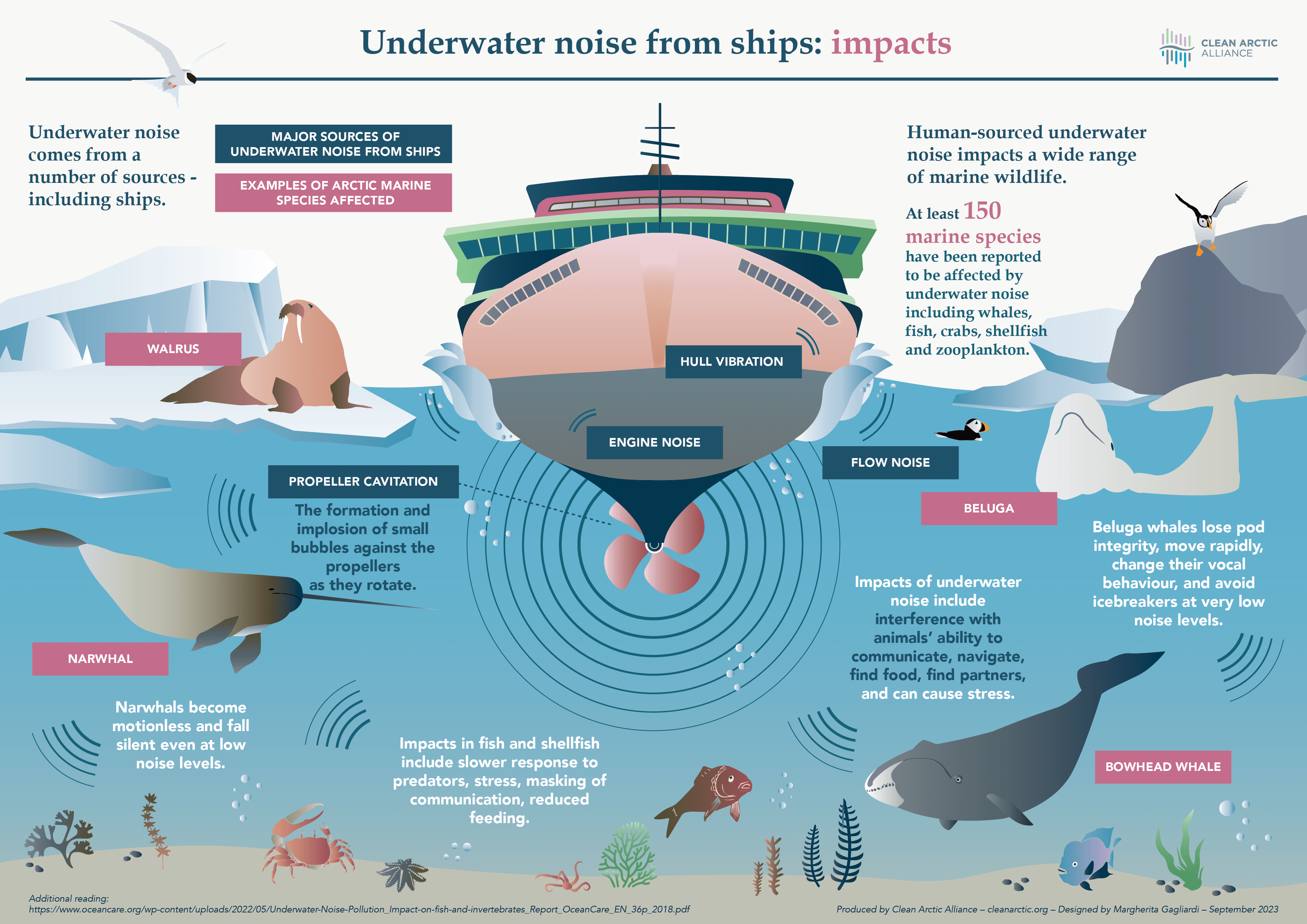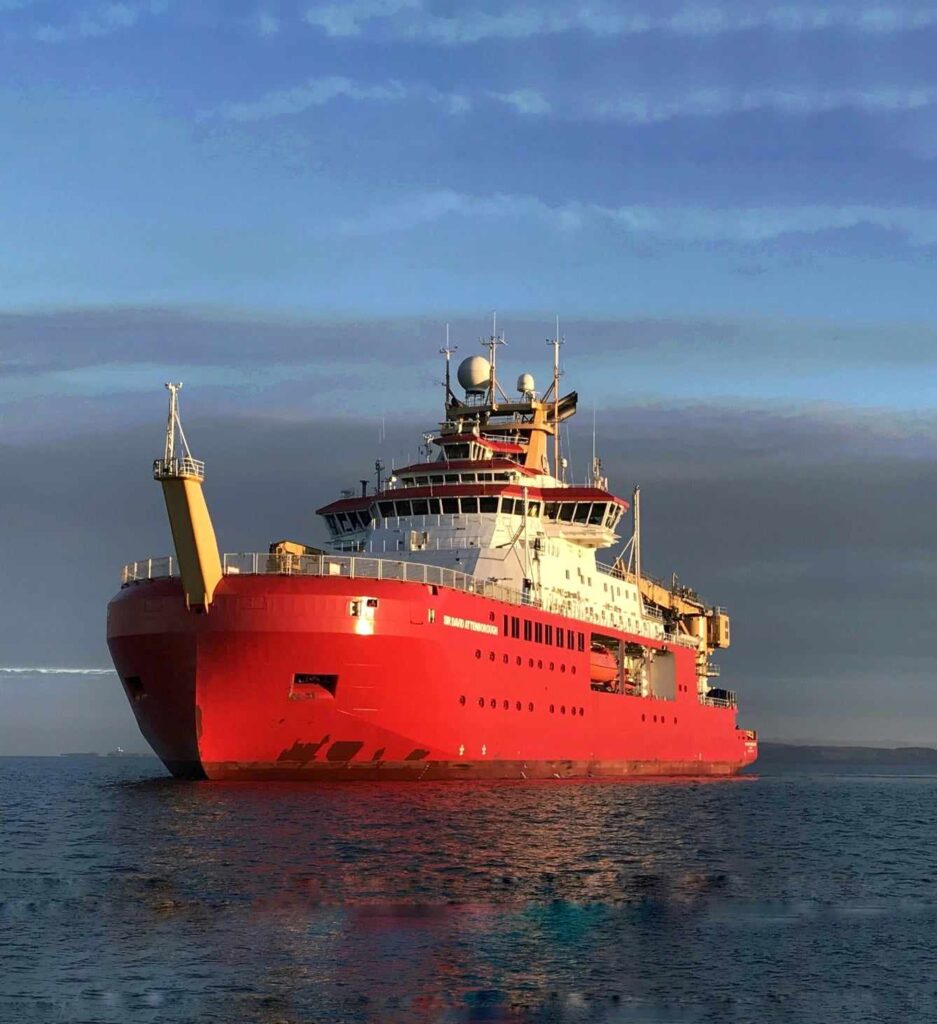From 15-16 October, the International Maritime Organization’s (IMO) GloNoise Project and the World Maritime University (WMU) jointly delivered the “Workshop on Underwater Radiated Noise Reduction Policies and Strategies with a Focus on Developing Countries”.
The workshop, generously supported by the Schlüter Foundation for Shipping and Environmental Protection, took place in Malmö, Sweden—home to the World Maritime University (WMU)—and was presented both in person and via live stream.
ِActivities generate underwater radiated noise (URN)
Against the backdrop of increasing human activities such as shipping, sonar use, marine construction, and energy exploration, our oceans are being significantly affected, from nearshore areas to the high seas.
These activities generate underwater radiated noise (URN) that can travel long distances, negatively impacting marine life, ecosystems, and the coastal communities that depend on them. Shipping, in particular, is one of the major sources of underwater noise in the marine environment, with vessels of various sizes producing a wide range of sound frequencies.

Over 200 participants
The workshop gathered over 200 participants, including a diverse group of experts from various organizations and countries. Representatives from GEF-UNDP-IMO GloNoise Partnership countries, Argentina, Chile, Costa Rica, India, South Africa, Trinidad and Tobago, Georgia, Madagascar and Malaysia participated, and more than 50 countries showed interest and registered for participation.
The workshop was divided into four sessions addressing the following themes:
Session 1: Impacts of URN from Multi-Disciplinary Lens
Session 2: Global and Regional Policy Frameworks
Session 3: URN Mitigation Solutions, Transferrable Practices and Role of Stakeholders
Session 4: Challenges and Pathways: Focus on Developing Countries

Mitigation solutions, transferrable practices
Discussions included mitigation solutions, transferrable practices, and the role of stakeholders. Challenges and pathways were also presented through interactive panel discussions that included representation of GloNoise Partnership countries and the three WMU Schlüter Fellows from the
Malmö MSc in Maritime Affairs programme.
Representatives from various organizations shared key messages and insights on URN from multi- and trans-disciplinary perspectives taking into account global and regional policy frameworks. Participating organizations included the IMO, WMU,
Food and Agriculture Organization of the UN (FAO), National Oceanic & Atmospheric Administration (NOAA), Transport Canada, ECHO Program and Vancouver Port Authority, Federal Maritime and Hydrographic Agency (BSH), European Maritime Safety Agency (EMSA), Baltic Marine Environment Protection Commission (HELCOM), Inuit Circumpolar Council (Canada), International Chamber of Shipping ( ICS ) BIMCO, University of Strathclyde, University of Southampton, University of Exeter, OceanCare and Acústica Marina SpA.
To access photos and Presentations through the IMO’s website, click here.
GloNoise Partnership
Global Partnership for Mitigation of Underwater Noise from Shipping (GloNoise Partnership) project is part of the wider efforts by IMO, in collaboration with the United Nations Development Programme (UNDP) and the Global Environment Facility (GEF), to address the impacts of underwater noise on marine life.
The project is funded by GEF
The project is funded by GEF and officially entered the implementation phase with the signature of the final version of the project document (ProDoc) in December 2023. The project has a duration of two years and has nine beneficiary countries, six Lead Pilot Countries (LPCs): Argentina, Chile, Costa Rica, India, South Africa and Trinidad and Tobago; and three Twinning Partner Countries; Georgia, Madagascar and Malaysia.
“Glo-X” family of IMO projects
The project implementation strategy is based on the well-developed “Glo-X” family of IMO projects and includes the following four components: (i) global toolkit development and policy analysis, (ii) capacity-building and awareness raising in participating developing countries, (iii) fostering partnerships on URN mitigation from shipping, and (iv) monitoring, learning, adaptive feedback and evaluation.
Reduction of underwater noise from commercial shipping
The project will help drive action on the implementation of the Revised IMO guidelines for the reduction of underwater noise from commercial shipping to address adverse impacts on marine life (MEPC.1/Circ.906/Rev.1), with the ultimate goal of mitigating underwater noise from shipping and its adverse impacts on marine ecosystems and their living resources.
Also assist developing countries
The project will also assist developing countries to build capacity to implement existing guidelines and collect more information to support IMO‘s policy dialogue, as well as developing an online toolkit for implementation by experts at national levels.
Read more :
IMO : Four pilot projects Decarbonization solutions ready
Shipping industry : ICS proposes GHG fee to meet IMO 2050 target




